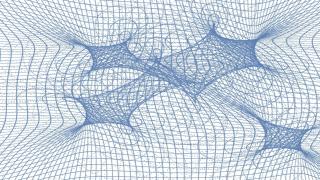Bibcode
Jiménez-Vicente, J.; Mediavilla, E.
Bibliographical reference
The Astrophysical Journal
Advertised on:
12
2022
Journal
Citations
16
Refereed citations
14
Description
We introduce the use of the fast multipole method (FMM) to speed up gravitational lensing ray tracing calculations. The method allows very fast calculation of ray deflections when a large number of deflectors, N *, are involved, while keeping rigorous control on the errors. In particular, we apply this method, in combination with the inverse polygon mapping (IPM) technique, to quasar microlensing to generate microlensing magnification maps with very high workloads (high magnification, large size, and/or high resolution) that require a very large number of deflectors. Using FMM-IPM, the computation time can be reduced by a factor of ~105 with respect to standard inverse ray shooting (IRS), making the use of this algorithm on a personal computer comparable to the use of standard IRS on GPUs. We also provide a flexible web interface for easy calculation of microlensing magnification maps using FMM-IPM (see https://gloton.ugr.es/microlensing/). We exemplify the power of this new method by applying it to some challenging interesting astrophysical scenarios, including clustered primordial black holes and extremely magnified stars close to the giant arcs of galaxy clusters. We also show the performance/use of FMM to calculate ray deflection for a halo resulting from cosmological simulations composed of a large number (N ≳ 107) of elements.
Related projects

Relativistic and Theoretical Astrophysics
Introduction Gravitational lenses are a powerful tool for Astrophysics and Cosmology. The goals of this project are: i) to obtain a robust determination of the Hubble constant from the time delay measured between the images of a lensed quasar; ii) to study the individual and statistical properties of dark matter condensations in lens galaxies from
Evencio
Mediavilla Gradolph